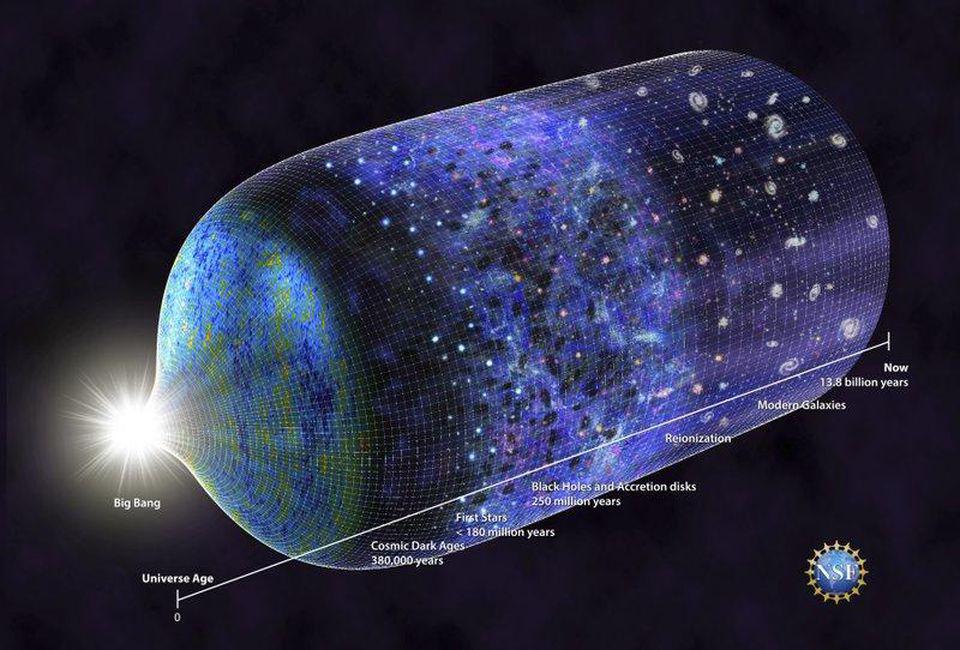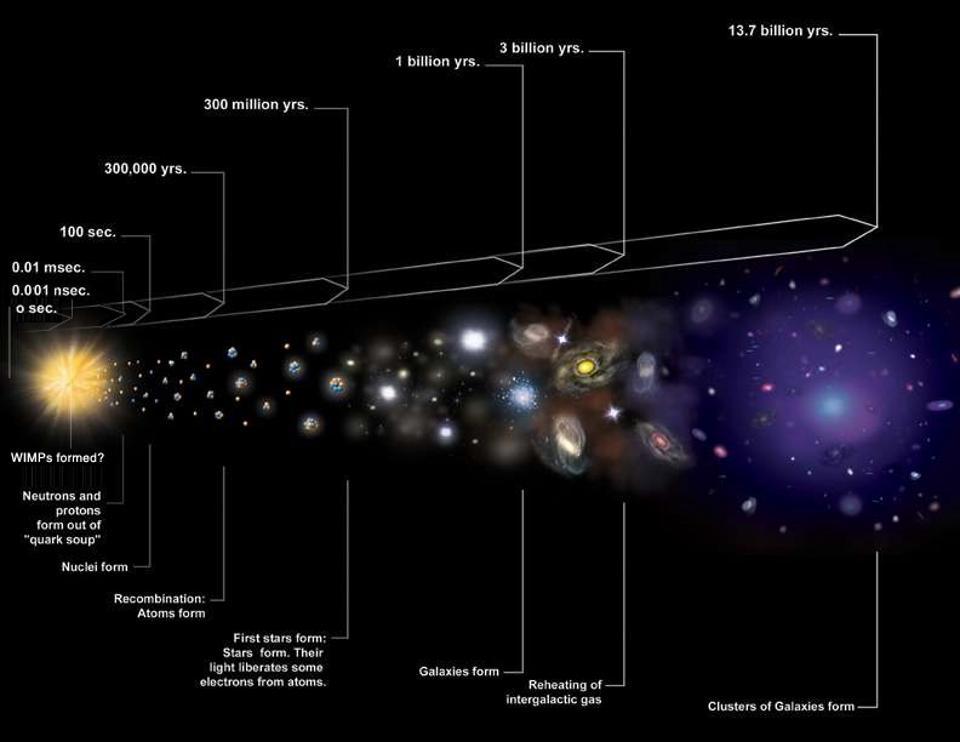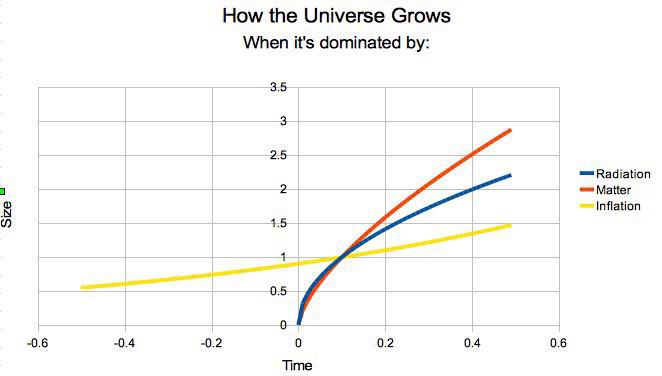Before the Bang: Or, What Came First, the Everything or the Everything Else?
Good evening everyone:
Well, evidently nothing is beyond question. Not the supremacy of dogs over cats. Not the impenetrability of Donald Trump’s taxes. Not the unacceptability of men wearing brown shoes with blue suits.
And, to my utter astonishment, not the incontrovertibility of the Big Bang as the universe’s origin story.
I fear that this kind of note is the inevitable consequence of you all letting me get away with writing relatively unchallenged about cosmology for the better part of two years – it leads me tonight to write to you with a suggestion that the Big Bang may not actually be all that it is cracked up to be.
In a recent article in Forbes, Dr. Ethan Siegel, an astrophysicist whose blog was once named the best of its field by the Institute of Physics, argues that the Big Bang was not the birth of the universe, but instead was preceded by “cosmic inflation: ”a state of the universe that created the preconditions for the Big Bang."
I should probably stop there for any number of reasons, including a red, flashing incomprehensibly-esoteric-subject-matter alert, but also – and I should probably take this more seriously – a self-indulgent-dilettantism alert.
But I was so taken aback by this assertion, which flies in the face of everything we thought we knew about the beginnings of the universe, that I felt that I could use some company in wending my way through the idea. So here you are – if, in fact, you are still here.
Here isa somewhat simplistic depiction of the accepted theory of how the universe evolved over the fourteen billion years following the Big Bang:

There are few things about which there seems a clearer astrophysics consensus than that we can trace the universe’s beginnings by interpreting various cosmic signals that reveal themselves as we look at objects increasingly distant from us – that space and time are integrally intertwined. Those signals have led to the theory that the mega-explosion of the Big Bang cast out the matter and energy of the universe, with the universe becoming larger, less dense, and cooler as it expanded – a process that continues now.
In turn, the recognizable elements of the universe – stars, black holes, galaxies – began to clump, forming in accordance with the laws of physics:

Tracing backward, then, the universe was denser, hotter, and smaller the closer you got to the moment of the bang – or time “0.” In fact, though, because all that matter and energy had to come from somewhere, the Big Bang theory posits that 0 is not quite nothing, but instead a “singularity” – the smallest possible point, with complete uniformity and infinite density and temperature.
So far, so good. But not for Dr. Siegel. He agrees that there was a Big Bang, and that we can’t see any further/farther back in time/space than that. He proposes, however, that that does not mean that there was nothing before the Big Bang; he states that the most recent cosmological data suggests instead that the universe was in a pre-existing state that led to the Big Bang. He terms that precursor state “cosmic inflation.”
There is something sensible and reassuring about this idea. It’s difficult – at least for me – to imagine that something (i.e., the singularity) emerged from nothing. It’s hard enough to make sense of – and verify – that the universe as we know it emerged from the “singularity” state. It’s mental shut-down to accept that there was nothing – is no such thing as – “before.” I just don’t think our minds/at least my mind are wired to grasp that concept.
That’s why I felt compelled to pass along Dr. Siegel’s analysis – which is shared by some, but certainly not all, astrophysicists.
Siegel suggests that the “cosmic inflation” state – the pre-Big Bang period – is characterized by “quantum fluctuations getting stretched across an exponentially expanding universe. I think he argues – but I got completely turned around by his analysis – that the “stretch” culminated in the blow up. So what would we find if we were capable of looking back in time to find the origin of that particular form of the universe? Siegel argues thatwe can’t know – that it’s not possible to find an end-point (or start point) to cosmic inflation.
Because the following chart is rooted in quantum mechanics, I have no idea what it says – except that I think that the yellow line can be seen as representing the universe during cosmic inflation, merging?/contributing to?/causing? at an instant after “singularity” the Big Bang. And once we get there, we’re back into familiar territory.

Conclusion? Siegel says: “We can no longer speak with any sort of knowledge or confidence as to how – or even whether – the universe itself began.” It could have been inflating forever or could have been preceded by another Big Bang, which was preceded by another cosmic inflation, and on and on.
On a call last week, Chantel remarked on my inclination to sit in relative comfort with ambiguity. I’m not sure that’s what I do. This stuff is ambiguity. What I sit with is probably just chronic confusion.
Rip